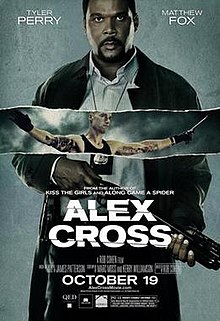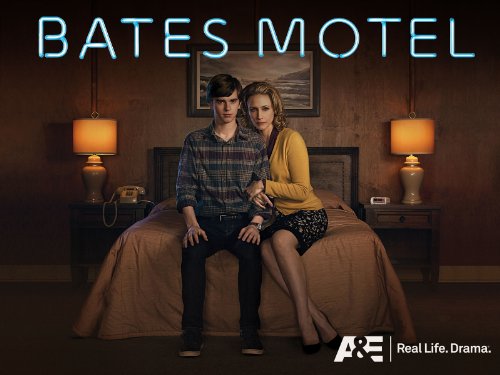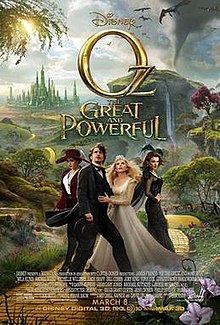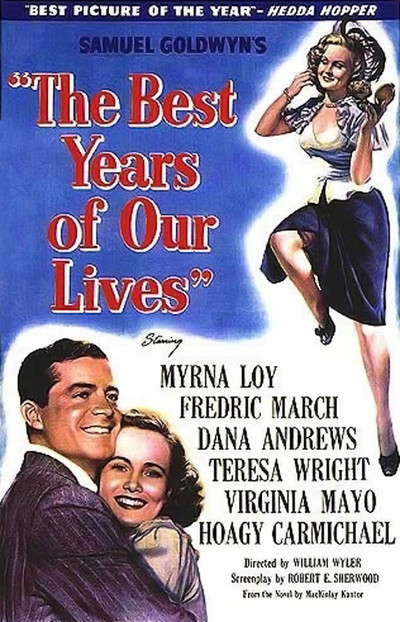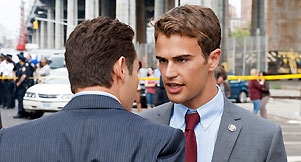Pink Lady Ingest...
This is a hard review to write. A Study in Pink, the reimagining/updating of the debut Sherlock Holmes story A Study in Scarlet is the first episode of Sherlock, which comes from the pen of one Steven Moffat. Longtime readers will know the difficulties I have with Mr. Moffat and what he has done to my favorite television show, Doctor Who. I am doing my best to separate my growing hatred for Moffat from a dispassionate and fair review for A Study in Pink, so forgive me if I at times go on a tangent.
This is a hard review to write. A Study in Pink, the reimagining/updating of the debut Sherlock Holmes story A Study in Scarlet is the first episode of Sherlock, which comes from the pen of one Steven Moffat. Longtime readers will know the difficulties I have with Mr. Moffat and what he has done to my favorite television show, Doctor Who. I am doing my best to separate my growing hatred for Moffat from a dispassionate and fair review for A Study in Pink, so forgive me if I at times go on a tangent.
After a long time, I finally forced myself to watch A Study in Pink. There are things to admire in it, but now that I have seen it I think that perhaps too many people are seeing things in it that are not there, overpraising the end product without acknowledging the curious aspects of the episode.
Dr. John Watson (Martin Freeman) has returned from Afghanistan where his war wounds go beyond the physical. Having returned to London, he finds lodgings are hard to come by. That is, until a chance encounter with an old classmate leads Watson to one Sherlock Holmes (Benedict Cumberbatch), consulting detective for the Metropolitan London Police. Holmes is looking for for a flatmate as well, and with Watson perhaps they could split an abode at 221 B Baker Street.
Holmes is aiding the police, headed up by Detective Inspector Lestrade (Rupert Graves) in a strange series of serial suicides. Four people have died in the same way: by taking pills that kill them. What makes this strange is that A.) there is no connection between them, and B.) they were found in the most unlikely places. The fourth victim is found in an empty house, wearing pink.
Holmes works out that she was a serial adulteress who is missing two things: an overnight case and her cell/mobile phone. He finds that those are vital clues, and that these four deaths are the work of a serial killer. Watson, meanwhile, is taken to meet a man who calls himself Holmes' arch-enemy (or at least would be described by Holmes as such). Asked to spy on Sherlock, with compensation, Watson refuses.
Watson is soon thrown into the case, at one point helping Holmes chase down a taxi where our killer might be. It appears to be a false lead, but it proves what Holmes had surmised about Watson: his limp and need for a cane is not a war wound by a psychosomatic wound. The final clue the woman left, the word "Rache" scratched out with her thumb, was obviously the word "Rachel". She did have her daughter named Rachel, but she was stillborn. It then hits Holmes that "Rachel" is the password to her cell phone, which he traces...right to 221 B Baker Street.
This cabbie (Phil Davis) freely confesses to Holmes: he is the killer. However, he never actually kills anyone. Instead, he merely takes them somewhere and offers them a choice: the victim can choose one of two pills. Though identical-looking, one is poisonous while the other is clean. The cabbie (whom I don't think ever gave his name but I might be mistaken) takes the pill not chosen, and so far he's picked the right one. It doesn't matter to him: he has a brain aneurysm that will kill him, and he's paid for every person who dies, the money goig to his children. Now, a 'fan' of Holmes has brought them together.
Holmes refuses to take either pill, and is close to escaping, but the cabbie (whose name is Jeff Hope) taunts him to find which one is the right one. He comes close to taking one of those pills, convinced he can pick the right one, when the cabbie is shot dead. Holmes is able to deduce who the shooter is, but then stops, realizing that the deductions lead to a John Watson, who is somewhat obliviously looking on. A Study in Pink ends with us finding who the 'arch-enemy' is: a government functionary named Mycroft Holmes (Mark Gatiss), and Holmes pondering the name of the 'fan', one Moriarty.
 What undid A Study in Pink for me were certain factors, both of logic and taste. First, I was puzzled by all the cloak-and-dagger business poor Dr. Watson is put through by our mysterious 'arch-enemy'. A Holmesian with the most scant knowledge of The Canon (where I would put myself in) would believe the 'arch-enemy' would be Professor Moriarty. While having it turn out to be Mycroft is a nice twist I did wonder why Mycroft just didn't wait for Dr. Watson to fully be integrated into Holmes' world before approaching him. Certainly it would not be beyond the realm of possibility for John Watson to talk about his life once he turned to the blog his psychiatrist has urged on him. I would have figured The Personal Blog of John Watson would be a far easier and cheaper source of Sherlock Holmes' activities than some double-agent business.
What undid A Study in Pink for me were certain factors, both of logic and taste. First, I was puzzled by all the cloak-and-dagger business poor Dr. Watson is put through by our mysterious 'arch-enemy'. A Holmesian with the most scant knowledge of The Canon (where I would put myself in) would believe the 'arch-enemy' would be Professor Moriarty. While having it turn out to be Mycroft is a nice twist I did wonder why Mycroft just didn't wait for Dr. Watson to fully be integrated into Holmes' world before approaching him. Certainly it would not be beyond the realm of possibility for John Watson to talk about his life once he turned to the blog his psychiatrist has urged on him. I would have figured The Personal Blog of John Watson would be a far easier and cheaper source of Sherlock Holmes' activities than some double-agent business.
Furthermore, I am surprised that more Holmesians aren't too upset about changes to A Study in Scarlet. The Conan Doyle story made it clear that the idea that "rache" being "Rachel" was dumb, but in A Study in Pink it makes it clear that the idea that "rache" was the German for "revenge" was the dumb idea. What made A Study in Scarlet brilliant was that the 'obvious' clue wasn't all that obvious. Here, Moffat decided he knew better...or that by making "rache" stick to its original meaning it might have made A Study in Pink too close to the original...or that modern-day audiences wouldn't buy the idea of 'revenge'.
I can see how given the plot of A Study in Pink the 'rache' HAD to change because revenge WASN'T the motive. Still, that didn't sit too well with me.
My big problem with A Study in Pink is Moffat's rather odd fixation with homosexuality. Allow me a slight digression. The American Sherlock Holmes television series Elementary has tweaked the Canon by making Watson into a woman. On that show, there is hardly any suggestion that Jonny Lee Miller's Sherlock Holmes and Lucy Liu's Joan Watson will ever become lovers. On Sherlock, there is a constant sense that Benedict Cumberbatch's Holmes and Martin Freeman's Watson either will or people think they are lovers.
 |
| If we were lovers... |
Three times in the 90-minute A Study in Pink (or once every thirty minutes if you will), someone thinks these two are an item.
- The landlady Mrs. Hudson (Una Stubbs) mentions there is a second bedroom should they need one. A befuddled Watson tells her of course they'll need a second bedroom...why would they need only one?
- The 'arch-enemy' asks Dr. Watson, "Might we expect a happy announcement by the end of the week?" when remarking how quickly Watson has entered Holmes' world.
- At a cafe, the owner whom Holmes helped out brought a candle to the table "to make it more romantic", and kept suggesting Holmes and Watson were on a date...which a clearly frustrated Watson kept denying. Later on, Watson himself asks Holmes if he has a boyfriend (which would be fine with him) and in turn Holmes tells Watson that he isn't interested (suggesting that Holmes thinks Watson is hitting on him).
Throw in the fact that the "Harry Watson" who had given John his mobile phone was not as Holmes surmised Watson's brother but his sister Harriet who had broken up with her wife Clara and I keep thinking this whole "people think we're gay so it must be funny" business comes from another century. I also note that in the future, when the iconic Irene Adler appears, she is...shock of shocks, a lesbian!
As a side note, let's focus that on Doctor Who, the 'inspiration' for Sherlock Holmes & Dr. Watson are a same-sex interspecies couple: the lizard-like Silurian Madame Vastra and the human Cockney Jenny. I can only speculate on Moffat's thinking, but it does seem rather odd that on one show, the Holmes-Watson parallel is homosexual, while on the actual Sherlock Holmes television show, almost everyone assumes the two men are romantically or sexually involve.
In short, on one Sherlock Holmes show, there is nary a suggestion that a man and a woman are schtupping, but on another Sherlock Holmes show, there is constant suggestion that two men are. Let me be clear: people's sex lives are irrelevant to me. My beef isn't with whether or not either or both are gay. My beef is if this is done for comedic effect, it falls flat because that kind of 'confusion' hasn't been funny since the seventies. It's just both distracting and silly, never funny.
A BIG mistake from a directing point in my view comes during the taxi chase. In the excitement of the run, Watson forgets something, and at the end, he finds out what it is when his cane is brought to him. The mistake Paul McGuigan made was in drawing our attention to the cane when the chase began. Imagine what would have happened if we the audience had been allowed to forget the cane the way Watson had. The surprise that would have come to both Watson and the audience when we are shown the cane brought back to us would have been so powerful. Instead, by drawing our attention to the abandoned walking stick, the surprise element is gone.
Finally, I wasn't sold on the idea that Jeff Hope (the name is drawn from the killer in the original story, Jefferson Hope), had to be slightly sympathetic. He was doing it for the children. Why couldn't he just do it because he enjoyed this clever way of killing without a patron, and a particular patron in that?
However, there are many positive aspects in A Study in Pink. Chief among them are the team of Cumberbatch and Freeman. Cumberbatch is quick and clever as Holmes, one who is bright but also almost devoid of human understanding. When a girl at the morgue asks if he'd like a coffee, he answers yes...and for her to bring it up to him. When she does, he is puzzled as to why she has removed her lipstick so soon after putting some on. His mannerisms of someone who can come to almost correct conclusions but not be fully aware of how insulting he can be makes Cumberbatch's Holmes both highly intelligent and oddly dim at the same time.
Freeman is a wonderful Watson (which makes his total loss on my Best John Watson poll, receiving no votes whatsoever) puzzling. He certainly is more comic than most Watsons (his constant flustration--a mix of fluster and frustration if you will) at being in situations he'd rather not be both criminal and social makes him endearing. However, when called to take action, Freeman makes Watson not the bumbling idiot of the Nigel Bruce school but not as fight-happy as Jude Law's interpretation. For Freeman's Watson, violence is used when needed. It might be because Freeman's Watson is the only television Watson (apart from Edward Hardwicke's Granada series version) to have endured war. However, Freeman is the only one to be a veteran still going through post-traumatic stress disorder, which has left him crippled (more emotionally than physically as he imagines). The mix of haunted veteran, man of action, and comic foil is just brilliant.
In her few moments of screentime, Stubbs' Mrs. Hudson provides both comic relief and a hint of a mother figure to our two eager young lads. Graves' Lestrade stays close to the detective who isn't up to speed as he should be, but at least he isn't totally stupid: his drugs raid on Baker Street show he can eventually work things out (Lestrade figuring Holmes might know more about the missing case than he lets on).
On the whole, A Study in Pink IS well-acted: Cumberbatch and Freeman make a good team and individually give good performances. It also stays close to the outline of A Study in Scarlet (the poisoned pills, the cabbie being important...though it would have been amusing to have seen him in drag, the 'rache' clue) if not the actual plot. It does make me wonder whether what I had been led to believe about Sherlock (that it was the Canon reinvented for the 21st Century) is not true (they WON'T be taking Canon stories and reinterpreting them but basically stay within the original stories and venture into original ones). Somehow, after watching A Study in Pink, it looks like Sherlock will stay closer to The Canon than something like either Elementary or the Robert Downey, Jr. films, but still wander away from the Granada adaptations.
To conclude, A Study in Pink is good, but not worthy of the adulation and fanaticism Sherlock has built up. Despite the Sherlock super-fans (some who think Steven Moffat CREATED Sherlock Holmes), I think The Canon is still better.
 |
| To coin a phrase, "Run you clever boys..." |
7/10
Next Sherlock story: The Blind Banker


